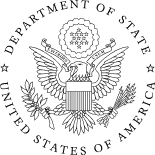Story of Diplomacy
Diplomacy through Many Storms: Ambassador Lino Gutiérrez
Natural disasters, such as hurricanes, are constantly impacting diplomacy and international relations. In 1992, Hurricane Andrew resulted in 3 casualties and $250 million in damage in the Bahamas alone. Supporting the safety, security, and stability of allied nations is a central goal of American diplomacy. As a result, after these storms, American diplomatic involvement increases in multiple ways. At the very least, diplomats are involved in helping American citizens evacuate these natural disasters, as Lino Gutiérrez did in the Bahamas in 1992.



